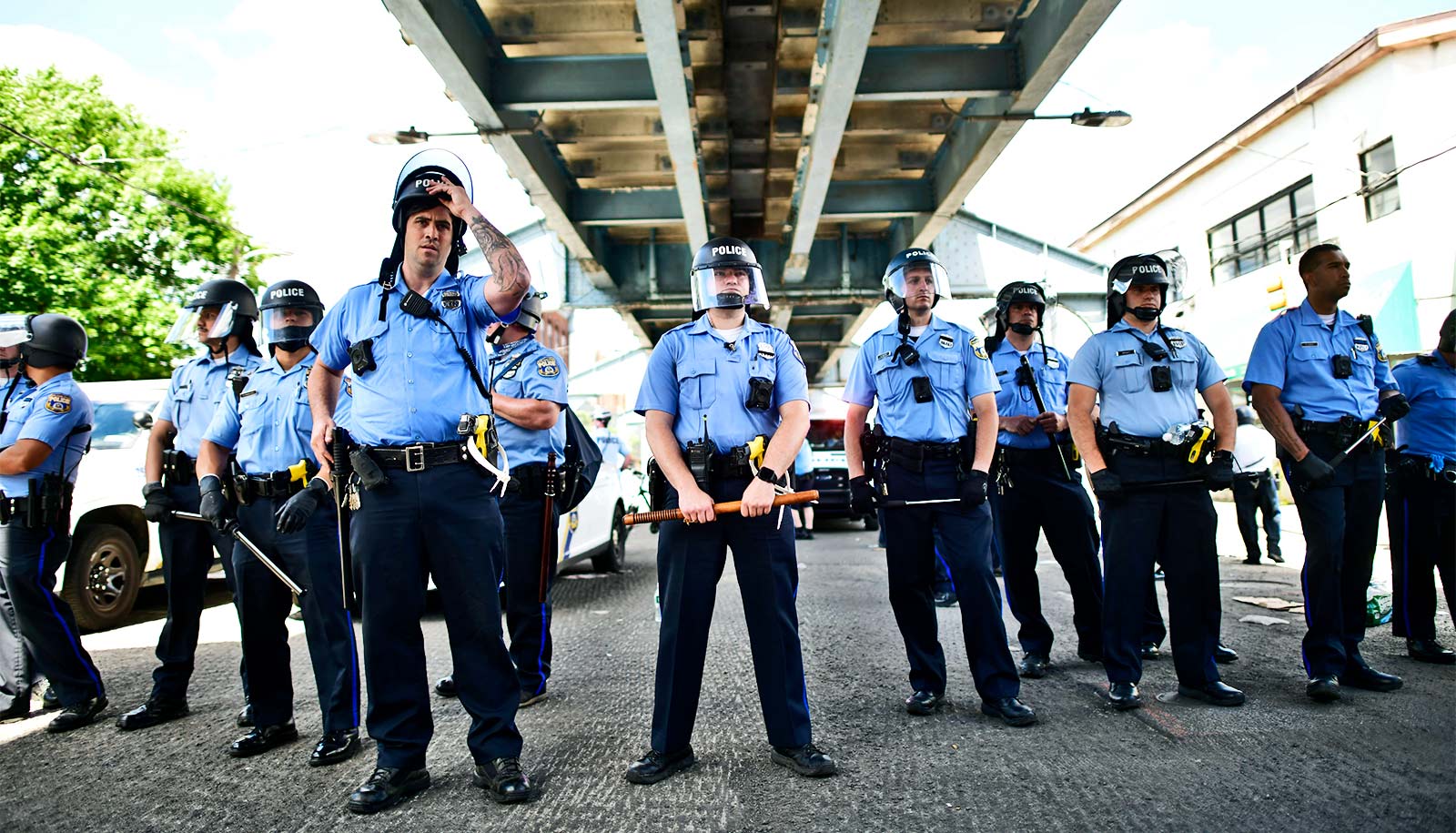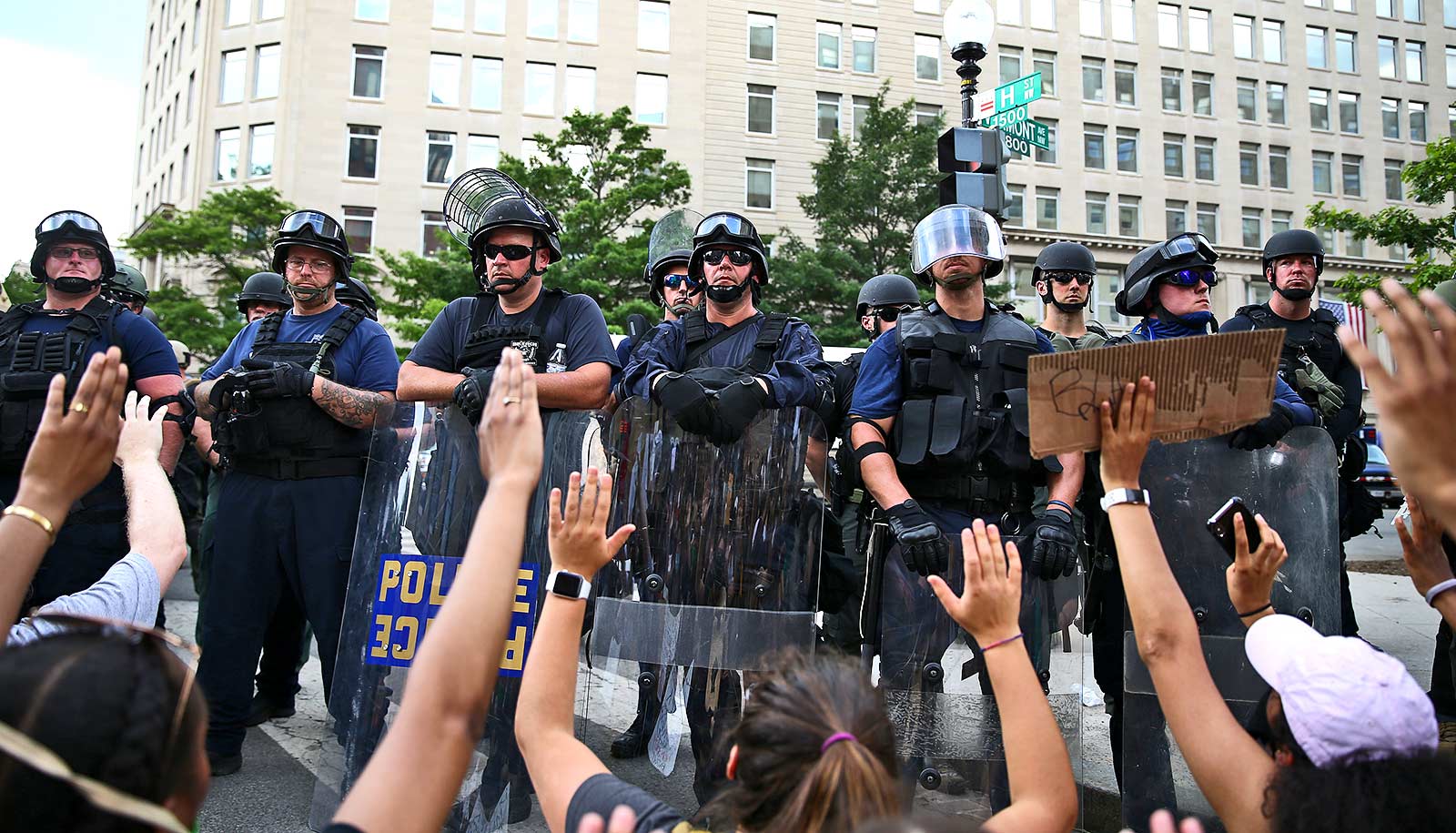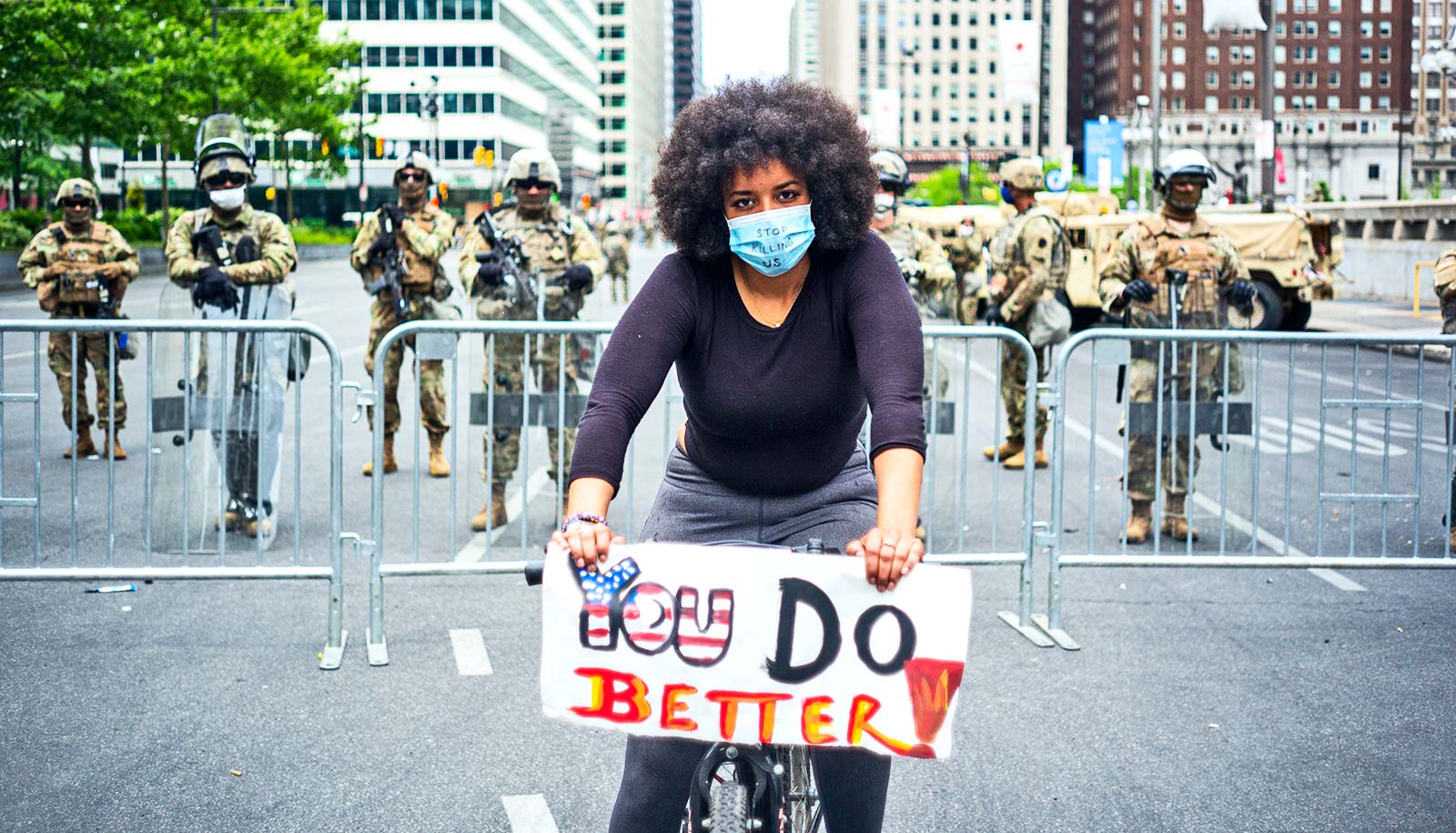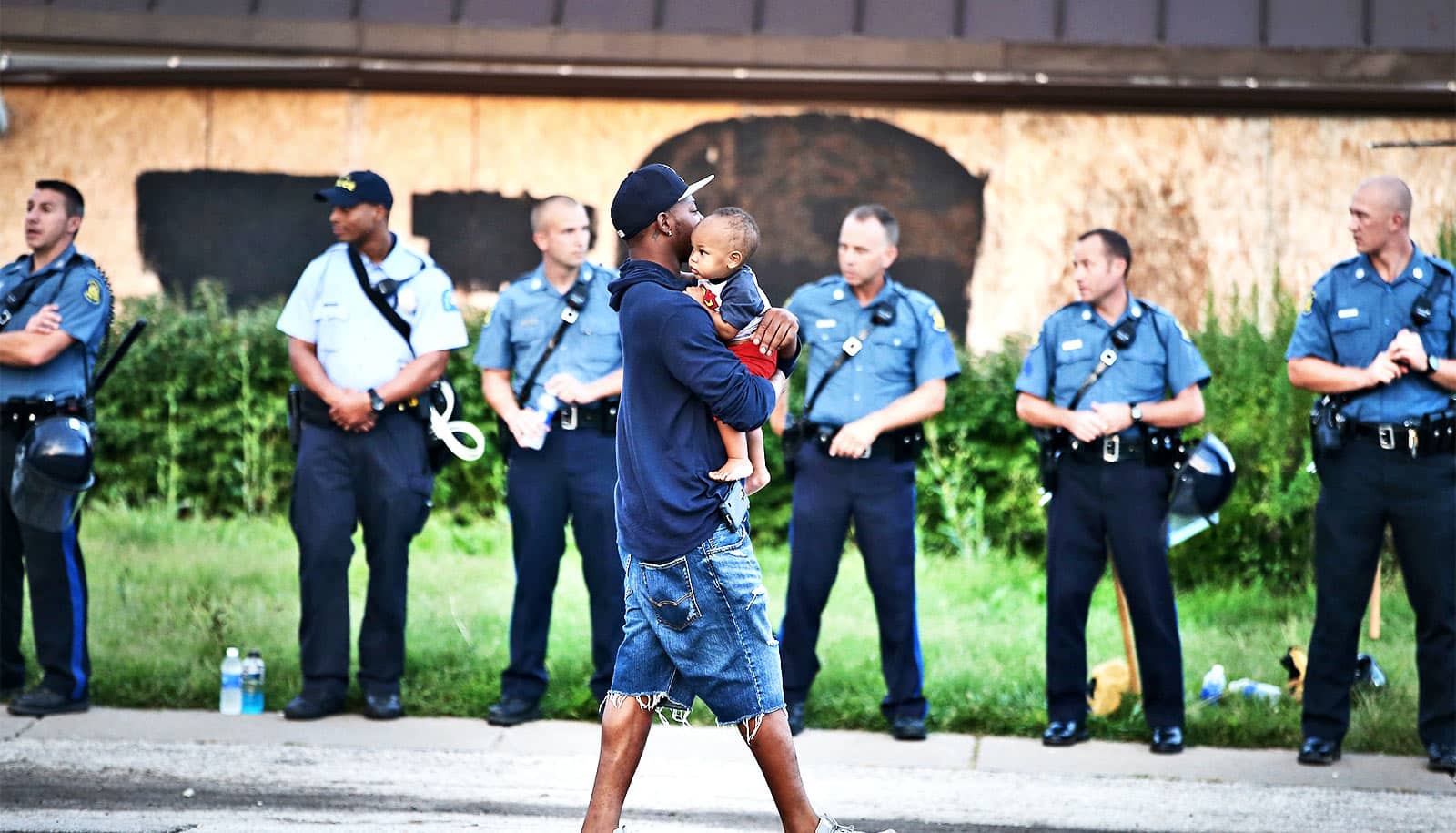Police use-of-force policies in the nation’s 20 largest cities fail to meet international human rights standards, according to a new report.
The report in the University of Chicago Law Review Online comes amid growing demands for police reform at local, state and federal levels following the deaths of George Floyd, Breonna Taylor, Laquan McDonald, and many other Black Americans.
“The video and testimonies from these incidents provide grim illustrations of the power law enforcement officers have over the people they are sworn to serve and protect and the deadly consequences when they abuse that power,” says Claudia Flores, director of the International Human Rights Clinic at the University of Chicago.
“Police lethal use-of-force policies provide the primary source of guidance and accountability for officer discretion to use force in any given situation—and police in this country have a great deal of discretion.”
The report reviewed the 2018 police department policies in the 20 largest cities of the United States, grading them using a system developed from international human rights law and standards on police lethal use of force.
Although international sources provide clear guidance on how human rights can be protected in the context of law enforcement, Flores says, the United States remains largely alone among its peers in failing to comply with those standards.
“Police departments grant their officers deadly discretion, allowing the use of lethal force to capture an escaping suspect or to prevent the commission of a felony, regardless of whether the suspect poses a threat of any kind,” says Flores. “Clear constraints on police discretion are critical to protecting the human rights of all people—especially members of marginalized or disempowered communities.”
The report emphasizes the global challenge of balancing police power with basic human rights—including the rights to life and security of person. To meet this challenge, the 193 member countries of the United Nations, including the United States, have developed principles and standards to constrain the use of police power, including the UN Basic Principles on the Use of Force and Firearms by Law Enforcement Officials.
Human rights law and standards require that police use of force be grounded in law and necessary and proportional to the danger presented. They also require robust systems of accountability to respond to police abuse of power.
Among the 20 largest US cities, no police department has a use-of-force policy that meets these principles, Flores says. Instead, many policies justified lethal use of force for “escaping suspects” or “fugitives,” or for “self-defense” or “prevention of crime”—regardless of the threat posed to officers or civilians.
Some key examples:
- Austin, Texas permitted the use of deadly force to make an arrest or prevent an escape when a subject had committed an offense involving the infliction or threatened infliction of serious bodily injury or death, without requiring that the threat of serious bodily injury or death be immediate.
- Houston only required police officers “to constantly assess the situation and adjust the use of force accordingly,” failing to require that force be used as a last resort.
- Jacksonville, Florida failed to require that lethal force only be used as a last resort.
- Indianapolis allowed for the use of force to prevent the commission of a forcible felony, without limiting or specifying the relevant felonies or the kind of force or threat of force involved.
In addition, the report finds that 18 of the 20 cities do not have accountability mechanisms that comply with human rights standards.
“Not only are state laws and use-of-force policies failing to set clear limits on the use of lethal force, but these lax standards are then buttressed by a set of judicial doctrines and legislative standards that make holding officers accountable even more difficult,” says Nino Guruli, a fellow and lecturer in the International Human Rights Clinic.
The report recommends Congress, state legislatures, and police departments take substantial and immediate steps to bring police use of force policies into compliance with human rights standards.
The recommendations for federal legislation include a legal mandate for the Department of Justice to collect, store, analyze, and make public data on police actions from the 50 US states and territories; and the elimination of qualified immunity.
Recommendations for state legislatures include requirements for law enforcement officers to use de-escalation techniques to defuse all threats; and the elimination of techniques, tactics, and technologies that pose a risk of death or serious bodily harm, such chokeholds, neck restraints, tear gas, and rubber bullets.
The report also recommends that—in light of extensive evidence of excessive use of force by federal, state, and local law enforcement during lawful demonstrations—government at all levels should re-evaluate the presence of armed police during lawful public gatherings.
“True police reform must start in the policies and practices of police departments themselves,” says Brian Citro, assistant clinical professor of law at Northwestern Pritzker School of Law and faculty coauthor on the report. “In light of the recent police killings of George Floyd, Breonna Taylor, Manuel Ellis, and others, the failure of police policies to sufficiently constrain the use of lethal force and ensure real accountability should alarm every one of us.”
Source: University of Chicago



